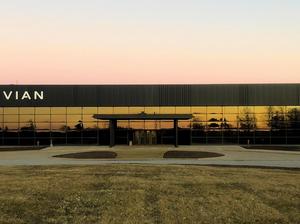At a commercial steel mill facility in China, Skokie startup LanzaTech has made more than 20 million gallons of ethanol from pollution. That's the equivalent of preventing 100,000 tons of CO2 from hitting the atmosphere.
LanzaTech, one of Illinois’ most-funded cleantech startups, has invented a method to create renewable forms of fuel by fermenting bacteria that converts a range of gasses into ethanol.
“Instead of fermenting sugars to make beer, we ferment gasses,” said company CEO Jennifer Holmgren.
Those gasses include carbon monoxide, hydrogen and carbon dioxide, all of which can be found at industrial waste streams and are damaging the environment every day.
“Every time we make ethanol, we prevent these gasses from going out into the atmosphere,” Holmgren said. “We give carbon a second chance at life, and we believe we can have a huge impact.”
But the impact that LanzaTech and other cleantech startups can have is limited by how much funding they can raise and how quickly they can commercialize their products. Luckily for LanzaTech, it has believing backers that help the company’s more than 200 scientists and engineers continue their important work.
Since launching in 2005, LanzaTech has raised $400 million from both institutional venture capital sources and corporate investors. Backers include Khosla Ventures, Novo Holdings and the U.S. Department of Energy, but the funding has been slow to accumulate. LanzaTech has been incrementally raising funding for 15 years, a much longer pre-exit life-span than most startups.
“We started by going to traditional venture right at the beginning when we were just at the early stages,” Holmgren said. “But it’s not easy to raise cash for this type of technology. This is stuff that takes 50 years to commercialize.”
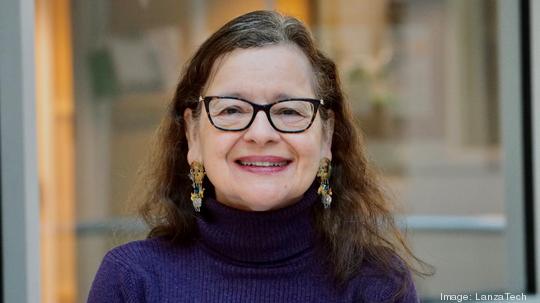
While climate change continues to be one of the biggest threats to our way of life, the financial support and infrastructure to help grow cleantech and sustainability companies nationally lags behind other industries. Of the $165 billion raised by U.S. startups in 2020, only about $18 billion of it went to climate tech and cleantech startups, according to PitchBook data provided to Chicago Inno. Companies categorized as climate tech raised $7.4 billion, while those labeled cleantech startups raised $10.3 billion, which was a record high for these startups.
Similar funding disparities exist in Illinois. Last year, Illinois startups raised $2.56 billion, with only $110 million going to cleantech companies. Illinois climate tech companies raised less than $1 million, according to PitchBook.
Compared to startups in other industries, cleantech and sustainability companies struggle to raise their first dollar of outside funding. Traditional venture capital has been reluctant to invest in the cleantech space because of the slow pace at which many of these companies move. And taking a risk on unproven technology that takes several years to commercialize isn't often the investing strategy of the average early-stage venture capital firm.
“The time horizons are really mismatched,” said Erik Birkerts, CEO of the Clean Energy Trust, a Chicago-based fund that invests in cleantech and hard-tech companies. “The traditional venture model, which is incentivized to deploy money fast and harvest money fast: It’s just not well-suited for these difficult technologies, which take a really long time. And the risk involved with a lot of these science-based ventures is super high.”
Despite cleantech funding lagging behind other industries in the U.S., new firms are popping up in Chicago, and investors who have long worked in the space said they feel optimistic about the direction funding is going. In interviews with Chicago Inno, cleantech investors and founders said they see more interest from corporations, government and even traditional venture capital firms than they did in previous years.
“Two years ago, much of my time was spent evangelizing why technology and innovation was critical to addressing greenhouse gas emissions and environment degradation,” Birkerts said. “But people have now realized that a big part of the solution will be technology innovation.”
Untraditional investment firms
Because of venture capitalists’ hesitancy to back early-stage cleantech startups, specific cleantech and sustainability-focused VC firms have popped up in Chicago and around the country to fill the gaps as well as nonprofit investment firms that rely on grant and philanthropic funding.
Since its founding in 2010, the Clean Energy Trust has backed 35 cleantech and hard-tech startups that are typically difficult to commercialize. The idea is to give them initial funding and a commercialization path and set them up to take more traditional VC down the road.
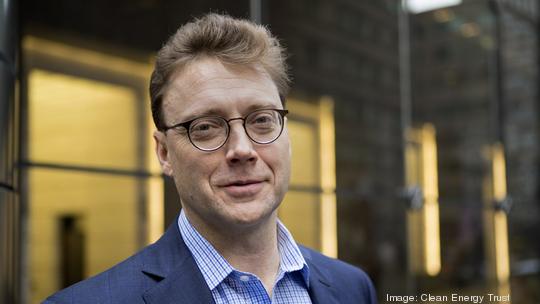
Unlike traditional venture firms, the Clean Energy Trust’s primary goal is not to make returns for its limited partners. Instead, the Clean Energy Trust operates as a nonprofit and raises funds through federal grants and philanthropic donations, Birkerts said. Investors include the likes of Exelon and Boeing, nonprofit foundations, state funding, the U.S. Department of Energy and wealthy individuals. The Clean Energy Trust most often invests in startups in the Midwest and usually cuts checks for about $250,000.
And as opposed to returning profits to stakeholders, the Clean Energy Trust reinvests portfolio company returns into new startups. The firm has had four of its portfolio companies exit, including enterprise ride-sharing business Splt, energy storage startup Go Electric, water and air purification tech company EP Purification and solar power analyzation platform Sun Number.
Back in 2010, when the Clean Energy Trust was founded, cleantech enthusiasts had a much harder time raising funding for these types of innovations, Birkerts said. The interest in fighting climate change with technical innovation has grown significantly over the last decade, and that change has been partially responsible for the number of new venture capital firms focused specifically on cleantech startups.
Amy Francetic, a longtime Chicago cleantech investor and one of the original founders of the Clean Energy Trust, has spent the last decade launching new funds focused on the space.
She founded Energize Ventures, a fund that focuses on bringing tech to the energy and industrial sectors, and launched a new firm last year with Daniel Hullah to specifically invest in the cleantech industry.
Called Buoyant Ventures, the firm is still raising its first fund, but will focus on Series A rounds for startups in North America and Europe, Francetic said. Buoyant plans to write checks ranging from $1 million to $3 million for startups across energy, transportation and agriculture sectors.
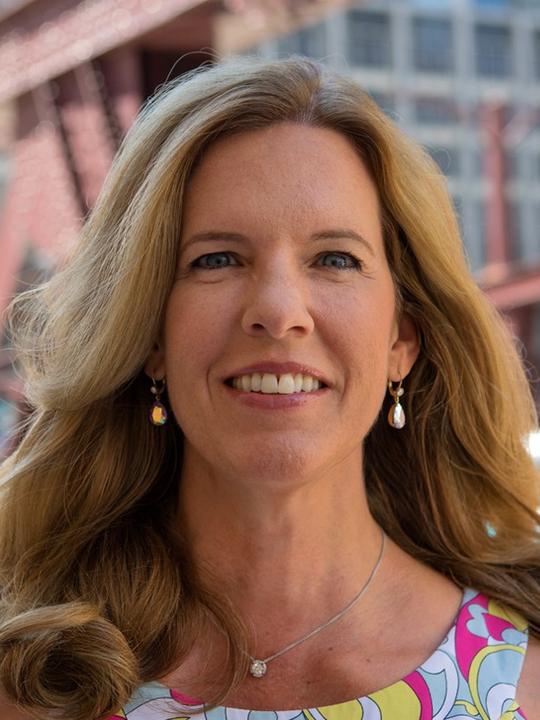
So far, Buoyant has only publicly invested in Boston-based Raptor Maps, which combines drone technology with AI software to collect aerial data and convert it into high-value system analytics for solar companies.
“We are seeing a profound number of young, innovative companies,” Francetic said. “And what’s giving me optimism and excitement about this space is the number of companies that are making decarbonization pledges.”
Besides Buoyant, Chicago-based S2G Ventures has raised $1 billion to invest in a variety of sectors to support a more sustainable future, including agtech. Last year, S2G announced it is investing $100 million into seafood startups and other ocean ventures that aim improve the health of the oceans.
‘The world is on fire’
The cleantech and sustainability tech industry across Illinois is growing. Besides LanzaTech, companies like Bill Gates-backed Nature’s Fynd are creating new methods for producing meatless and dairy-free foods, and others, like Intellihot, are making commercial tankless water heaters to reduce energy costs and greenhouse emissions.
Similarly, local startup Hero Power is giving Chicagoans the ability to support renewable forms of electricity by purchasing renewable energy certificates from wind farms across the country.
And BrightLeaf Homes, founded in 2008, is helping people build and buy high-performance sustainable homes in the Chicago area. The company specializes in building, designing and selling custom single-family homes, as well as renovating existing homes with energy-efficient technology, said founder and CEO Scott Sanders.
BrightLeaf’s energy-efficiency measures go beyond LED lightbulbs and smart thermostats. BrightLeaf homes are designed to use less heating and cooling energy than others. Sanders said that because many homes in Chicagoland sit on an east/west axis, putting windows on the south-facing sides of homes allows for natural sun heating in the winter. More windows means more light and a reduced need for electric lights, resulting in less energy consumption overall.
“Buildings, residential and commercial, account for a huge amount of the carbon generation and the effects that climate change is having on the country and on the world, and anything we can do to reduce the impact of buildings and the operating impacts … absolutely and undoubtingly helps the climate,” Sanders said.
Additionally, BrightLeaf homes are installed with dual-flush toilets and water-conserving faucets to create and conserve water. And most of the materials used to build the homes are locally sourced, reclaimed if possible, and are made with organic compounds, which can have health benefits, Sanders said.
“Energy efficiency is a byproduct of building high-quality, durable homes,” Sanders said. “Those little things add up over the course of a project.”
More recently, BrightLeaf has been experimenting with solar panel technology on some of its homes, installing Tesla solar power panels and batteries, Sanders said.
To date, BrightLeaf has completed 60 construction and renovation projects, and will finish 36 in 2021 alone, Sanders said. BrightLeaf has built homes across the Chicago area in West and North Side neighborhoods, as well as in suburban Palatine, Naperville and Elmhurst.
“It’s exciting,” Sanders said. “More people and families have a more comfortable space to live that is more durable and energy-efficient.”
While prices vary on a home’s location, Sanders said the average cost for building a home from scratch is about $700,000, with the average renovation project costing about $300,000, a big expense for the average homeowner.
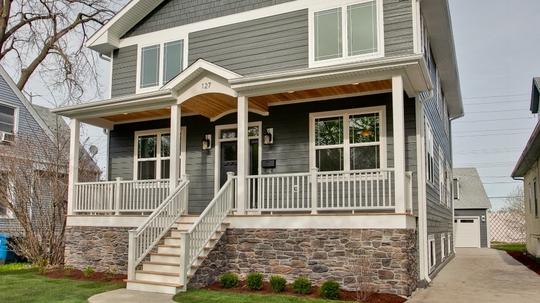
Like many other cleantech and sustainability companies, BrightLeaf’s challenge is figuring out ways to make its product more affordable and accessible. LanzaTech also is facing the issue of its tech being too expensive for mass adoption, Holmgren said.
LanzaTech’s renewable ethanol is used to build plastic materials as well as produce fuel for airplanes. Last year, LanzaTech launched a subsidiary focused on producing sustainable aviation fuel with the help of a $50 million cash infusion from the likes of Suncor Energy, British Airways and the U.S. Department of Energy. The spinout, called LanzaJet, also recently landed an undisclosed investment from oil giant Shell.
LanzaJet is constructing a plant in Soperton, Georgia, that will produce 10 million gallons per year of sustainable aviation fuel and renewable diesel for the commercial market. LanzaJet says its fuel delivers more than a 70% reduction in greenhouse gas emissions compared to conventional fossil jet fuel. Operations at the plant are scheduled to begin in 2022.
However, renewable fuel is expensive, sometimes costing twice as much as regular ethanol.
“We need to get down the cost curve by scaling the technology,” Holmgren said.
But scaling to the point where mass adoption can take place will take more time and, of course, more funding to ramp up manufacturing capabilities.
“There is money available," Holmgren said. "You just have to find the right pockets and find people that are aligned with your world view that these things matter.”
As climate change remains one of humanity's most pressing issues, that pooling of resources — by venture capitalists and others — to help address the crisis is paramount.
“We fundamentally are putting way too much carbon into the atmosphere,” Holmgren said. “If you think about it just from a climate change perspective, you really see tremendous impacts. It’s not a thing of the future. It’s happening right now before our eyes.
“We’re clearly changing our climate and it’s going to make it harder and harder for us to live comfortably on this planet,” Holmgren said. “We have to stop. The world is on fire.”

